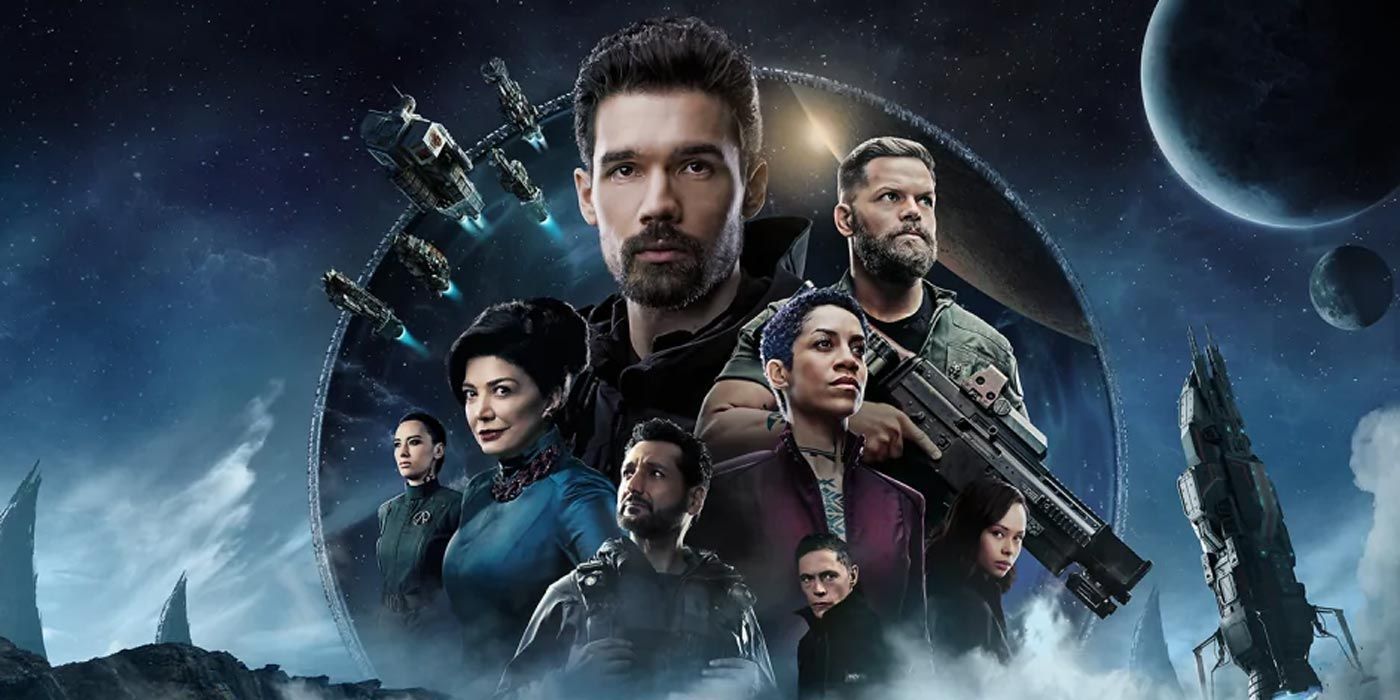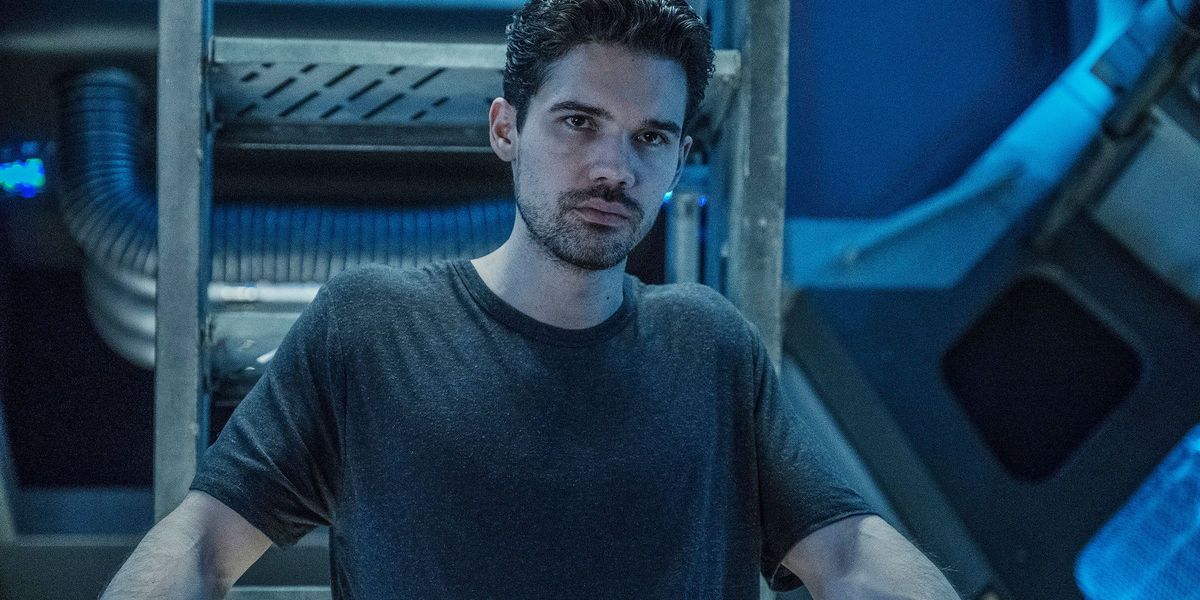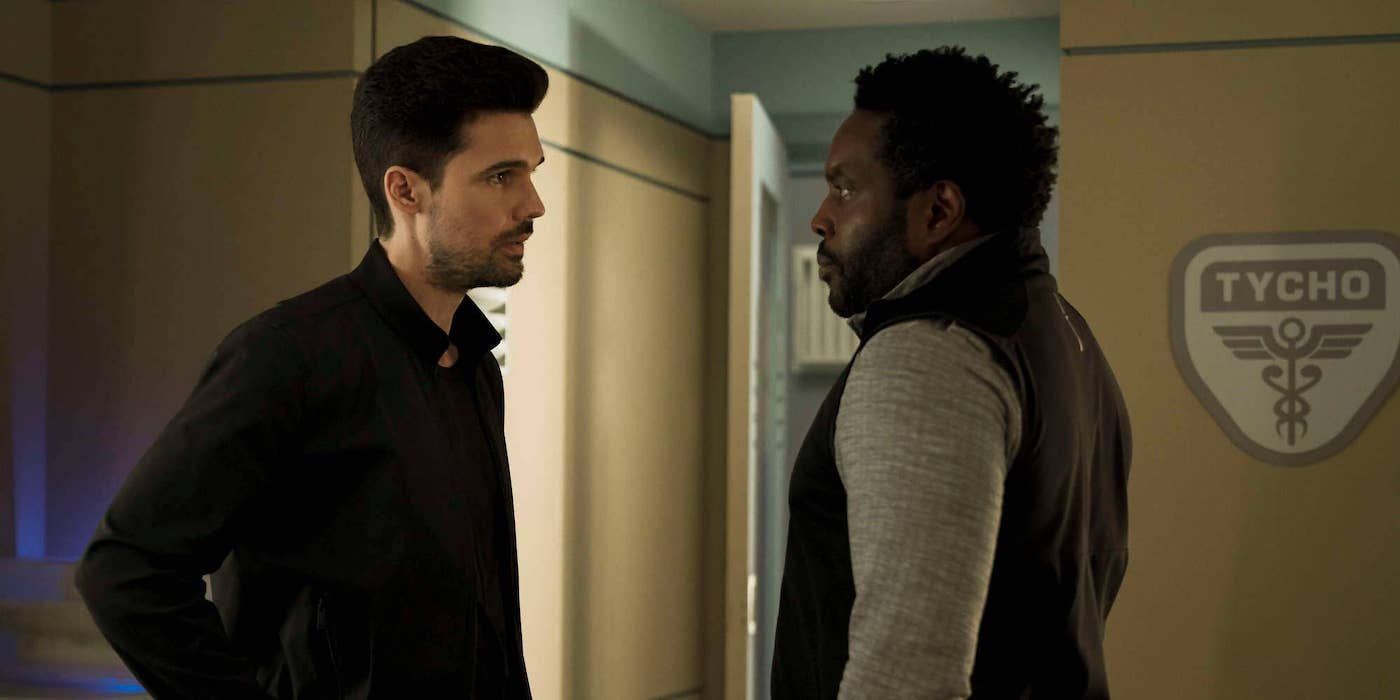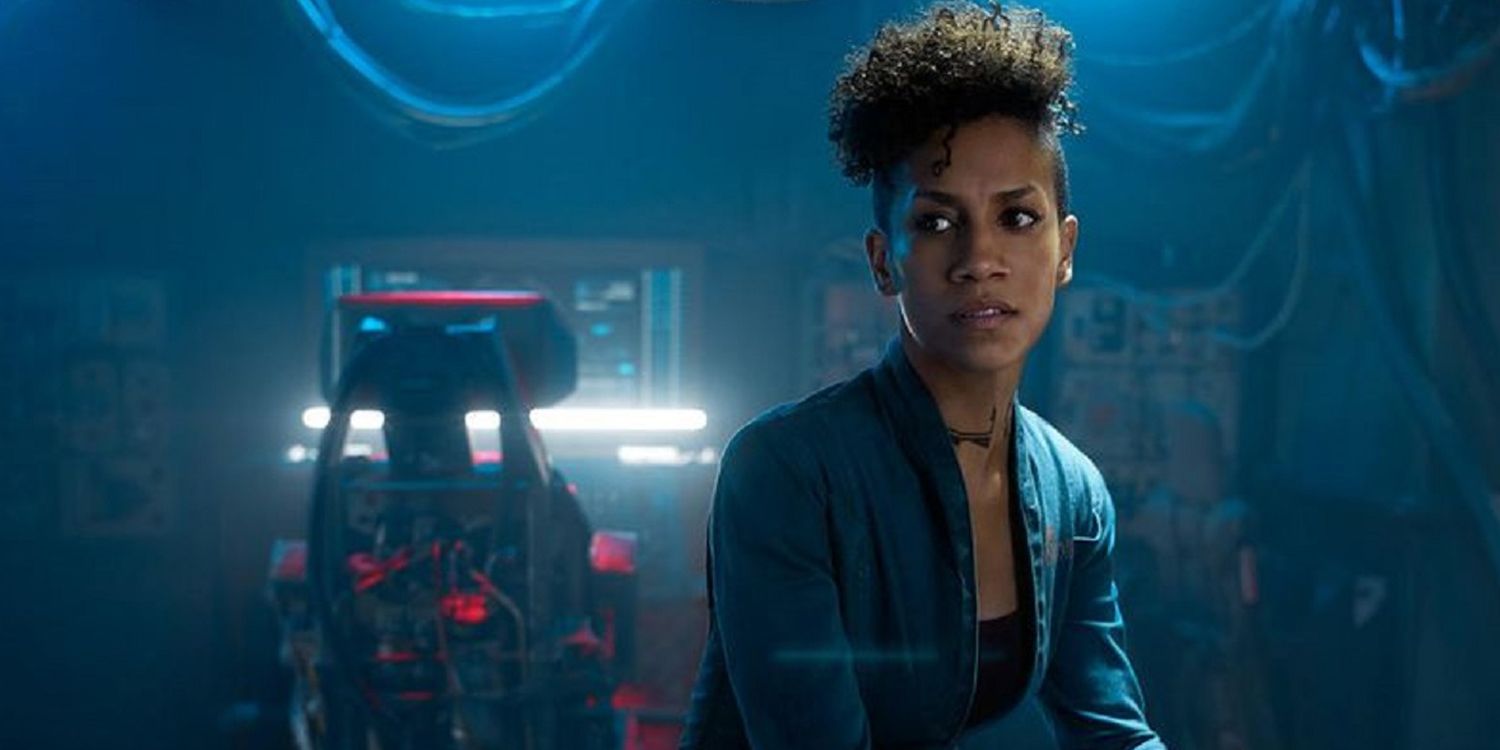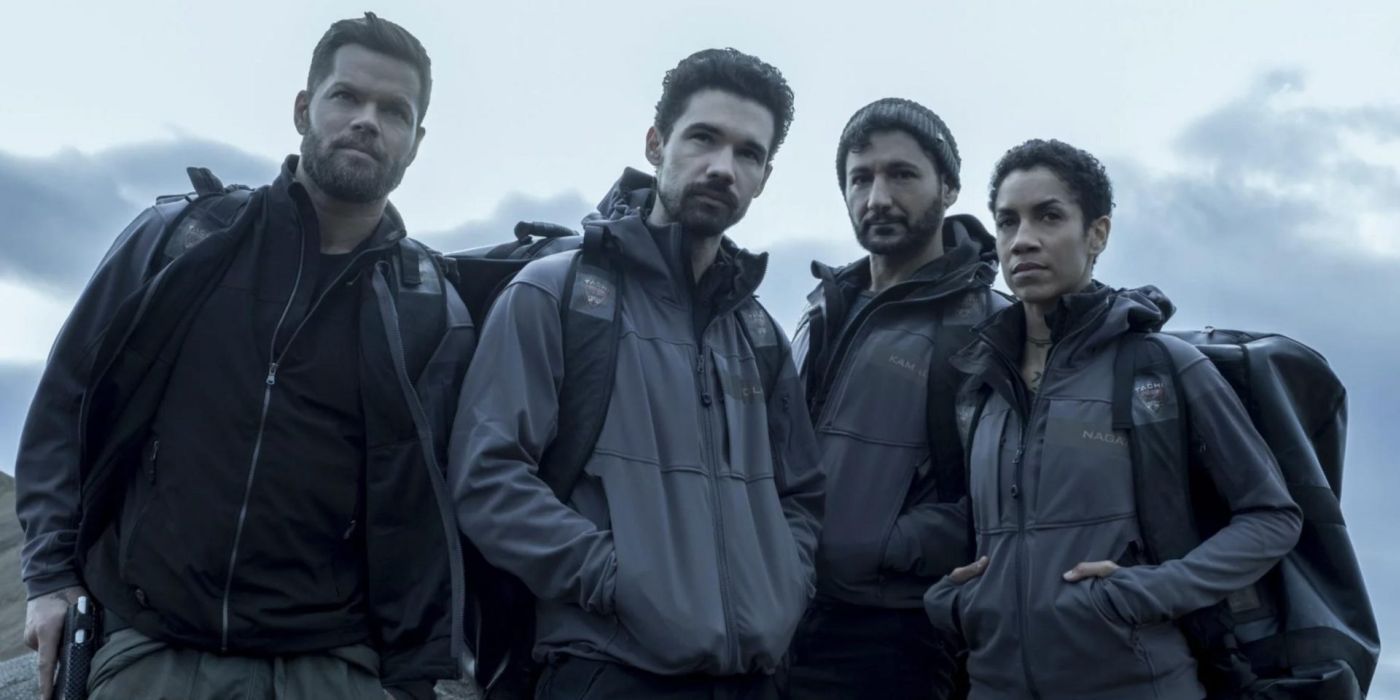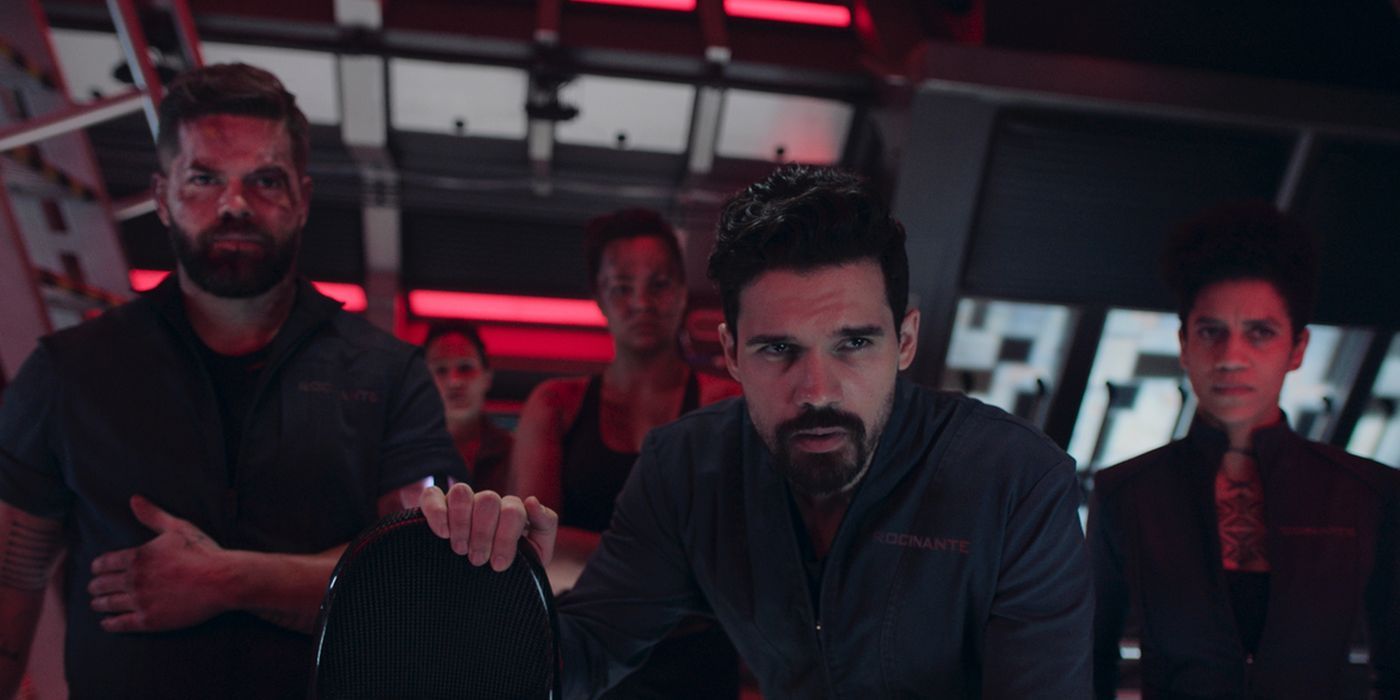WARNING: The following contains spoilers for The Expanse Season 6, Episode 6, "Babylon's Ashes," available to stream now on Prime Video.
After six seasons, The Expanse has come to an end, culminating in Jim Holden leading the crew of the Rocinante to destroy the villainous Marco Inaros and his paramilitary group, the Free Navy. For showrunner Naren Shankar, this is the completion of an ambitious drive to adapt the acclaimed science fiction novel series by Ty Franck and Daniel Abraham, with both authors working with Shankar in the writers' room. While the war against the Free Navy has come to an epic conclusion, there is plenty of material for a follow-up series to explore.
In an exclusive interview with CBR, Shankar reflected on the creative process behind The Expanse, unpacked Season 6's plot twists, and teased where a continuation could go next.
As the showrunner adapting The Expanse for television, you have the unique privilege of having the novels' authors Daniel Abraham and Ty Franck in the writers' room: that's like working with Shakespeare while adapting Hamlet. How was it running a writers' room with the novels' authors there?
Naren Shankar: I can tell you this, I was initially quite against it! [laughs] When I was brought on the show, Sharon Hall -- who at that time was the President of Alcon Television -- before the [writers] room begins, we sit down and have our talk. She goes, "By the way, the authors are going to be in the room with you," and I literally said, "Are you sure that's a good idea?" [laughs] I had done adaptations before and authors can be precious, and not knowing [Ty and Daniel] at that time, it could be a minefield. Sharon said that these guys get it, and Ty had worked for George R.R. Martin so that they know this is a different medium and understand an adaptation is a process. She said, "Look, if this doesn't work out, we can talk about that but they understand what this process is."
I went in on that very first day in the room and said to them how I saw things and here are the things I wanted to talk about and address and change and why. They were very open to it and got it. It was evident extremely quickly that these guys were going to be really good collaborators and they did understand the need. What ended up happening was we were very conscious about not breaking the larger story framework. I would suggest things like wanting to kill somebody and Daniel would be like, "Well, we can kill that guy but we're really going to fuck up all of Book 7." [laughs]
What I learned was that Ty and Daniel are really meticulous plotters: something that seems like nothing happens pays off two books later in a very significant way. It ended up being such a really great experience of having the authors adapt their own work to a different medium. We changed chronologies, the order of events, even from the very beginning. The crew gets to the Anubis after they leave Eros. How Fred gets the protomolecule is very different from how it happens on the show. But we never changed the big framework of the plot, we stayed true to it but got to it in a slightly different fashion. From my perspective, we just wanted to keep funneling as much drama as possible into the core cast. In the novel, it's okay if you break into certain perspective characters or introduce them along the line, but for the purpose of the show, that's what we tried to do.
One of the things that surprised me is Camina Drummer, who is a composite character of several Belter characters in the novel, and really rises to prominence in the latter seasons out of the shadow of Fred Johnson. What informed creating such an important composite character?
Initially, it was because we needed a character with Fred in Season 2 and we brought Drummer into it.
As we got into Season 3, we realized she was the logical person to funnel Bull's storyline into, and then we started funneling Michio Pa's story into her. We suddenly realized this was really a perfect way to get to the Michio Pa arc in this character who had all those different strings and also a very different relationship with Naomi. We adopted some of Sam Rosenberg's character into Drummer as well. She is actually the most composite character of everybody in the adaptation of the series, but, I think, to a really great ending because it took smaller individuals and turned it into a much more epic personality over the course of the show. I'm really happy with how that all turned out.
Cara Gee really knocks it out of the park.
Yeah, and we didn't really know her work. She's acted plenty but not in huge things, so when we found her, we were taking a flier on it. She was just amazing and made us want to write more for her. That was the other side of the process. Her performance was so strong. We just wanted to put more on her shoulders.
Do you remember any moments in the writers room that stirred up a considerable amount of debate in adapting the story for television and diverging from the source material?
There were several, I would say, and they weren't gigantic, they were all situational. For example, how Bobbie ends up working for Avasarala, was quite different in the books than it was on the show. That's an early thing that comes to mind. A number of times I had to make the case, where I would say here's why we should do things this way. In the early days, I would suggest something and Ty and Daniel would say it wouldn't work and we'd talk about it and I'd come across to show them how it could be done. [laughs]
And then it went the other way! I remember when we were getting to Abaddon's Gate, I was talking about doing the adaptation and Daniel goes, "Well, we could just skip that book entirely," and I was like "...What?!" [laughs] He went, "It's very intellectualized and academic." [laughs] That's how far it went and it's a very healthy thing. The Prax/Amos dynamic was another big one but these weren't things that people resisted. I think they were things people embraced and they were very conscious changes.
I might be remembering this wrong but the earliest that was the toughest one for Ty and Daniel was the whole thing about Naomi giving the protomolecule to Fred. It was quite different than it was in the book and done for different reasons. That one bore a fair amount of conversation but it's small stuff. I think people were emotionally on the same page and philosophically aligned, in terms of what the purpose and process of the adaptation was.
The other big change is halfway through the series, you jumped from Syfy to Prime Video. Though, even before that, The Expanse was never a show that pulled its punches in terms of violence or sex. Were there any changes in the storytelling or logistics?
I don't think there was a lot of change in the storytelling. I kind of feel like, if people watched it from the beginning, they wouldn't detect a change stylistically in the way we did the episodes. I think the show was always designed to be a tightly arced streaming show from the very beginning, regardless of whether it was on Syfy or not. We wrote it that way. We never wrote to act breaks in the room, even with commercial breaks on Syfy, but we didn't break the stories that way. What we would do is just break the stories continuously, whatever the A,B,C storylines were in a particular week. Robin Veith, one of our producers, had this technique where she would cut up our stories with a paper cutter and we would just assemble the structure and move it around and then we would throw act breaks in.
We never wrote to those act breaks or did those sort of shitty act breaks where there are two guys with a gun and then come back five minutes later to those same two guys with a gun. [laughs] We did film cuts where the scenes end. We wrote it that way. I hate commercial breaks so much -- and I spent a good chunk of my career in broadcast television. Amazon Prime has always been our streaming partner, even in our Syfy days, and when our episodes went on to Prime, I went into post-production and had our guys remove the [fade to] blacks for the commercials and re-edit the shows and score. We bridged the music so that when you watch it on Prime, it just looks like a continuous show on streaming.
There are no breaks because I think that emotionally detaches you. They just stop you from engaging with it and then you have to get back into it. It seems like a small thing but I actually think it's a big thing. From the very beginning, we conceived the show as a streaming show and that never changed. When we got to Amazon, we had no language restrictions, no content restrictions of any kind -- like nudity or the other things you'd have to worry about with broadcast television, which we had vaguely ignored anyway. [laughs] There was a time when [the network] wanted us to change the language and I said, "I don't want to," and they said, "We're going to bleep it out in the broadcast," and I said, "I don't care." I don't care if people have to watch it that way because the show lives on streaming so we didn't change the language.
When we got to Amazon with Season 4, all of the Illus storyline we filmed in an anamorphic aspect ratio because when you're on a planet, we wanted to give the sense of a larger vista. The director Breck Eisner and cinematographer Jeremy Benning thought it was a great idea and we did some tests. That mixing of aspect ratios would have never flown on broadcast television. That's one of the things we did that Amazon loved. It made it more cinematic and unique. Those kinds of possibilities opened up for us as we went.
Way back at the start of The Expanse, Avasarala is torturing a Belter, and by the end of Season 6, she's on Ceres Station making an overture to Drummer and giving the Belters a seat at the table. How was it charting her journey?
You're pointing to a great arc but I think if you looked back at every single character, you'd find a tremendous amount of change that they go on, even the unmovable object that is Amos. It's funny that you reference Avasarala in Episode 1 because we directly reference that in Episode 5 of Season 6. She says, "One time, I put a Belter up on hooks to get information out of him. I did it because I could. The Belt sees me that way because that's who I was but the point is I'm not that way now." We directly reference that trajectory because it's not something that happened over the course of one episode. It happened over the course of six years to get to that point. That was a big arc and I think every single character has that.
What I like about where we ended is that those changes felt real. That dinner scene on the Roci in Episode 6 of Season 6 feels earned. It feels like they've all chosen and want to be there. That is the family unit declaring that they are a family and I think every character has gone through a significant change.
In speaking of Amos, he and Bobbie lead the final charge and share such a great drunken moment in the previous episode together.
That was actually one of the arcs that emerged last. We had a very compressed season so we had to write Episodes 1 and 6 first. We knew we wanted Bobbie to go down with Amos on that assault but we weren't 100% sure how we got there. As we got through the first two episodes, we realized that this was a great opportunity to bond these two characters together because they hadn't really interacted all that much. Most of Bobbie's interactions have been with Avasarala and Bobbie had really paired up with Alex, that was the principal character connection. When we realized where we going to, we realized we had a great opportunity to explore a character relationship that we really hadn't.
The last time we saw Amos and Bobbie, they were ready to throw down with each other in Season 3. That was the limit of their interactions. [laughs] To move that relationship forward in Season 6, you get to that bar scene between the two of them and it feels like a great payoff and then he chooses to go down fighting by her side. Holden and Clarissa were the same way. We hadn't spent a whole lot of time with those two characters together. The composition of people on the Roci gave us an opportunity to explore character dynamics and pairings that we never really touched on before.
Within The Expanse Season 6, Holden has a whole arc sparing Marco and Filip's life before deciding to kill him by the end. As the reluctant leader, a guy just hauling ice when we first saw him, he gives up power to Drummer over the Transport Union by the end.
In terms of his larger arc, I think the big change in Season 6 is from Holden -- especially from when you look at it from the perspective of Season 1. He was running away from responsibility. He left Earth because he couldn't save his family farm and didn't want the responsibility on his shoulders so he took an easy gig he thought was nothing and that puts him on the Canterbury.
In Season 6, what has happened is he has really, for the first time, authoritatively taken on the role as the captain. These are his decisions. He is leading a ship at war. He is in charge and acting like a leader. The guy that didn't want responsibility has taken on the largest amount of responsibility and that goes in every dimension, whether or not it's his choice about not killing Filip on the Pella. Ty and Daniel describe that as a moment you don't usually see in science fiction, with a prototypical male hero using violence to solve a problem. Holden's decision is purely emotional and moral and he says, "I don't want you to wake up next to the man who killed your son. I understand the larger ramifications but I cannot do that because I love you." He's choosing love over that and that's not a decision you see often made by the male hero on a science fiction show.
I think the endpoint for Holden, in regards to the Transport Union, is when Avasarala tells him he's the guy who needs to step up. He sees a path through to the right decision which is that he believes you have to give up power. The only way that you can make sure an alliance is strong is when you give somebody power over you. That's the thing the Inners don't want to ever do with the Belters and Holden is the only way they're going to get there, by doing that. It's the moral sense of the man coming through in the midst of high-stakes politics that let us get to that. That's the idea: you have to give somebody else power over you in a meaningful way otherwise you're not really sharing power.
There is still plenty of room to explore, with three novels remaining beyond the television series finale and you've laid quite a bit of foundation with the story on Laconia and Winston Duarte. How was it crafting a definitive ending yet giving yourselves more room to potentially continue?
That's a good question and we get asked that a lot. It's probably the most controversial aspect from Season 6. People are like, "Season 6 is only six episodes and you wasted a whole storyline on Laconia that goes nowhere?!" These are not unfair criticisms, but, in terms of the logic of it, what we felt was given the ending of Season 5, everything hinged on trading protomolecule for warships and what are they building on Laconia with Cortazar that ends up eating the ship and killing the people on board.
If we had just dropped that, that would have also been unsatisfying because then the protomolecule would have never been a thing in Season 6. Even in the novel, they handle that storyline in a different way. It's a story told on Medina Station and the ring station installing the railguns and we talked about that. In a larger Season 6, if we had ten episodes, we might have done that storyline and handled it a little differently. It's a balance because we were leaving room for another chapter of the series, or a sequel or whatever the hell you want to call it, that was the logic. We had to set up these ideas, this world, what they were kind of doing, and the way to touch it back to the narrative was through the railguns and alliance with Marco. That was ultimately where we landed. If you've read the novels, all of those things are gigantic: the platform they're building in space, what Duarte's doing, and Cara and Xan running off through the woods with the dogs. These are all hugely impactful elements and hopefully, we'll be able to see more. [laughs]
Developed for television by Mark Fergus and Hawk Ostby, all six seasons of The Expanse are available to stream on Prime Video.

